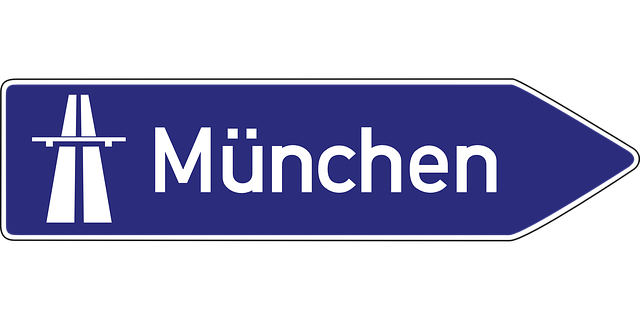In the stringent UK regulatory environment, translation services for UK Regulatory Compliance Documentation are indispensable. They leverage native speakers and specialized legal/technical expertise to ensure accurate cross-language communication, mitigating risks of errors, fines, and reputational damage. These services are crucial for navigating complex regulations, fostering trust with authorities, and enabling seamless business operations. Choosing the right provider is essential, focusing on native proficiency, industry expertise, quality assurance processes like peer review, and advanced tools for consistent, high-quality translations that meet UK compliance standards.
“Enhancing the accuracy of UK compliance documents is paramount for businesses aiming to navigate regulatory landscapes seamlessly. This article delves into the critical aspects of document precision, highlighting common challenges and offering practical solutions. We explore the transformative power of professional translation services, emphasizing the expertise of native language experts in regulatory documentation.
From key considerations in choosing providers to best practices for quality assurance, we provide a comprehensive guide. Through case studies and insights on emerging technologies, this article ensures you’re equipped with strategies to maintain and enhance document veracity, optimizing your UK compliance efforts.”
- Understanding the Importance of Accuracy in UK Compliance Documents
- Common Challenges in Ensuring Document Precision
- The Role of Professional Translation Services
- Benefits of Using Native Language Experts for Regulatory Documentation
- Key Considerations When Choosing a Translation Provider
- Best Practices for Effective Quality Assurance in Translation
- Case Studies: Success Stories of Accurate UK Compliance Documents
- Emerging Technologies and Their Impact on Translation Accuracy
- Strategies to Maintain and Improve Document Veracity Over Time
Understanding the Importance of Accuracy in UK Compliance Documents

In the realm of UK regulatory compliance, accuracy in documentation is paramount. Every detail matters when it comes to adhering to legal and industry standards, as even a minor error can have significant consequences. Translation services play a crucial role here, ensuring that documents intended for UK audiences are not only linguistically precise but also reflect the nuanced requirements of local regulations. Whether it’s technical specifications, marketing materials, or legal contracts, accurate translations are essential to navigate the complex landscape of British compliance successfully.
The impact of inaccurate documentation can be far-reaching. It may lead to costly delays, fines, and reputational damage for businesses. Professional translation services step in to bridge this gap by offering expertise in UK language and cultural nuances. These services employ native speakers who understand the subtleties of the English language as it is used within British regulatory frameworks. By leveraging their knowledge, businesses can create compliant documents that resonate with local authorities and stakeholders, fostering a seamless and successful compliance journey.
Common Challenges in Ensuring Document Precision

Ensuring document precision in UK regulatory compliance can be a complex task, presenting several challenges that require careful navigation. One of the primary hurdles is the intricate nature of UK regulations, which are subject to frequent changes and updates. Keeping pace with these revisions demands constant vigilance and meticulous attention to detail, especially when dealing with documentation that spans multiple sectors and legal domains.
Additionally, the importance of accurate translation services cannot be overstated, particularly in a multicultural business environment. When dealing with regulatory documents, language barriers can introduce subtle errors or misinterpretations. Professional translation services for UK compliance documentation play a vital role in ensuring that information is conveyed with precision and consistency across different languages, thereby facilitating smoother interactions with local authorities and stakeholders.
The Role of Professional Translation Services

When it comes to ensuring the accuracy and precision of your UK compliance documents, professional translation services play a pivotal role. In today’s globalised business landscape, companies often operate across borders, requiring regulatory documentation in multiple languages. Translation services for UK Regulatory Compliance Documentation are not just about converting words from one language to another; they involve specialists who understand the nuances of legal and technical terminologies unique to each jurisdiction.
These professionals employ meticulous processes, leveraging their expertise and advanced tools to deliver translations that perfectly mirror the original intent. They stay abreast of regulatory changes in both source and target languages, ensuring your documents remain up-to-date and compliant. This level of precision is vital for avoiding misunderstandings, legal pitfalls, and potential penalties associated with inaccurate or inadequate translations.
Benefits of Using Native Language Experts for Regulatory Documentation

Using native language experts for UK regulatory compliance documentation offers significant advantages. These professionals possess deep knowledge of both the legal and cultural nuances specific to the region, ensuring that all content is accurately translated and adapted for local requirements. Native experts can transform technical jargon into clear, accessible language tailored to your target audience, thereby enhancing document clarity and effectiveness.
Moreover, their proficiency in translation services for UK Regulatory Compliance Documentation guarantees consistency across multiple documents, reducing errors and potential legal pitfalls. This meticulous approach not only saves time but also mitigates risks associated with non-compliance, ensuring your documentation is precise, reliable, and fully aligned with local regulations.
Key Considerations When Choosing a Translation Provider

When selecting a translation provider for your UK regulatory compliance documentation, several key considerations come into play. Firstly, ensure they possess native-level proficiency in both the source and target languages to guarantee accuracy and fluency. The ability to convey complex technical terminology appropriately is vital, as mistranslations can lead to non-compliance.
Secondly, check their expertise in regulatory documentation. Experience in translating legal, medical, or financial texts is particularly relevant for compliance documents. Reputable providers should have a proven track record and case studies demonstrating their proficiency in this specialized field. Additionally, consider the use of quality assurance processes like peer review and machine translation post-editing to enhance accuracy and maintain industry-specific terminology consistency.
Best Practices for Effective Quality Assurance in Translation

Ensuring the accuracy and quality of translation services for UK regulatory compliance documentation is paramount to avoid legal pitfalls and maintain integrity. Implementing robust best practices in quality assurance (QA) processes is essential. These include meticulous source document review, where every aspect of the original content is scrutinised for nuances and potential challenges in translation.
Engaging qualified translators with specialized knowledge in relevant industry regulations is crucial. Continuous training and updates on UK legislative changes are also vital to their competence. Additionally, employing advanced translation memory tools and terminology databases enhances consistency and accuracy across projects. Implementing a multi-stage review process, including both internal experts and external peers, catches potential errors early and ensures the final document meets the highest standards of quality.
Case Studies: Success Stories of Accurate UK Compliance Documents

Many businesses have benefited from enhanced accuracy in their UK compliance documents thanks to professional translation services. These services play a crucial role in ensuring that regulatory requirements are met across multiple languages, reflecting the diverse nature of the UK’s business landscape. Case studies abound where accurate translations have led to successful outcomes for companies navigating complex legal and commercial environments.
For instance, a global pharmaceutical company faced challenges in expanding its operations into the UK due to non-compliance with local regulations. By engaging translation specialists who understood both industry jargon and UK-specific terminology, they streamlined their documentation process. This resulted in a clearer understanding of regulatory expectations and a faster time-to-market, ultimately securing their position in the competitive UK market. Such success stories underscore the importance of high-quality translations for UK compliance documents, ensuring that businesses can confidently navigate the regulatory landscape with precision and efficiency.
Emerging Technologies and Their Impact on Translation Accuracy

Emerging technologies have significantly transformed the landscape of translation services, especially in the context of UK regulatory compliance documentation. Advanced machine translation (MT) tools and neural networks now offer unprecedented accuracy and efficiency, bridging language gaps faster than ever before. These innovations leverage vast amounts of data to learn and adapt, ensuring more precise translations that capture subtle nuances and legal terminology.
For instance, artificial intelligence (AI)-powered platforms can analyze complex regulatory texts, identify patterns, and provide context-aware suggestions, minimizing human errors. This is particularly beneficial for UK compliance documents, which often require meticulous attention to detail and adherence to specific linguistic standards. By integrating these emerging technologies, translation service providers can enhance accuracy, reduce turnaround times, and offer cost-effective solutions for businesses navigating the intricate world of UK regulatory compliance documentation.
Strategies to Maintain and Improve Document Veracity Over Time

Maintaining the veracity of your UK compliance documents is essential, especially as regulations evolve and new requirements emerge. One effective strategy is to implement a robust document management system that includes regular reviews and updates. This process should involve cross-referencing against the latest legal guidelines and seeking expert advice when necessary. Translation services for UK Regulatory Compliance Documentation can play a pivotal role here; professional translators ensure that your documents remain accurate and up-to-date, even when dealing with complex or specialized terminology.
Additionally, establishing a clear documentation workflow can significantly enhance veracity. This includes setting up access controls to prevent unauthorized modifications, implementing digital signatures for traceability, and creating backup systems to safeguard against data loss. By combining these strategies with regular training for staff involved in document management, you can ensure that your UK compliance documents remain reliable, compliant, and fit for purpose over time.
Ensuring accuracy in UK compliance documents is paramount to avoid legal pitfalls and maintain regulatory integrity. By understanding common challenges, leveraging professional translation services, and adopting best practices in quality assurance, organizations can significantly enhance document veracity. Native language experts play a pivotal role in navigating the complexities of UK regulations, ensuring that documentation remains precise and effective. When choosing a translation provider, consider key factors and emerging technologies to stay ahead of the curve. Ultimately, investment in high-quality translation services for regulatory compliance documentation is an investment in business success and risk mitigation within the UK market.
